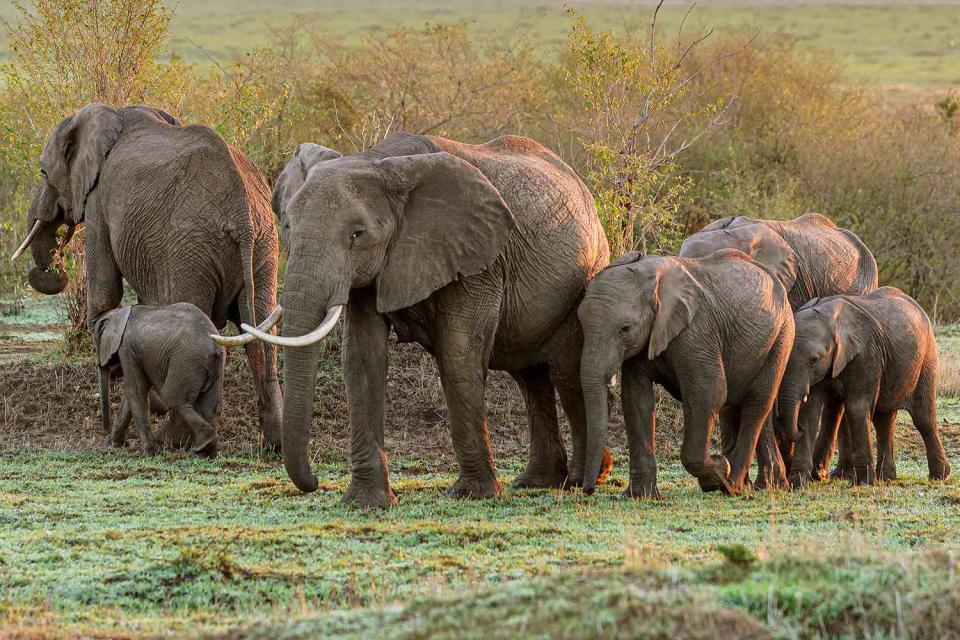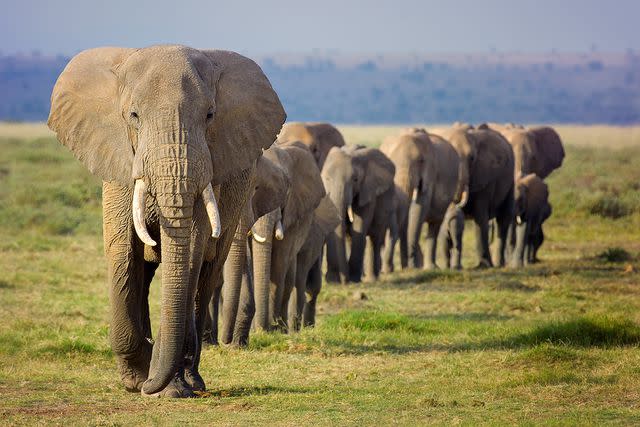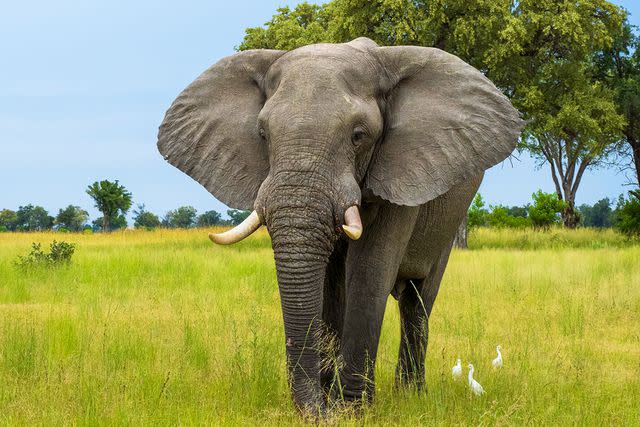African Elephants Use Unique Names Like Humans, New Study Suggests
According to a new study published on Monday, June 10, African elephants refer to one another with "individually specific calls"

Getty
African Elephants walking across the savanna of the Massai Mara, KenyaHumans aren't the only animals to use names.
According to a new study published in Nature Ecology & Evolution on Monday, June 10, African elephants also refer to one another through unique sounds.
Per NBC News, the study found that elephants can hear their names over long distances across the savanna when they speak to one another using low rumbles.
The research also discovered that the elephants learn to recognize and address their mates using their names instead of just imitating sounds.
“Here we present evidence that wild African elephants address one another with individually specific calls, probably without relying on imitation of the receiver,” the study abstract read.
Never miss a story — sign up for PEOPLE's free daily newsletter to stay up-to-date on the best of what PEOPLE has to offer, from juicy celebrity news to compelling human interest stories.

Getty
A family or herd of African Elephants marching in line at Amboseli National Park, KenyaRelated: Alligator Wrestling Tourist Attractions Hurting Not Helping Gator Conservation, Study Finds
To get the results, the study used “machine learning to demonstrate that the receiver of a call could be predicted from the call’s acoustic structure, regardless of how similar the call was to the receiver’s vocalizations,” adds the abstract.
The PEOPLE Puzzler crossword is here! How quickly can you solve it? Play now!
Scientists achieved this by following a herd of elephants in jeeps at Kenya’s Samburu National Reserve and Amboseli National Park, to closely observe the animals who called out and the ones who responded.
"We've had several incidents where we've been with these elephants and the matriarch of the family will give a call, and everyone in the family will answer,” co-author and Colorado State University ecologist George Wittemyer, said per ITV News.
"Then several seconds later, she'll give seemingly a very similar call and nobody in the family would answer except one individual."

Henrik Karlsson/Getty
An African savanna elephantRelated: Woman Who Cared for Captive Elephant for 36 Years Reunites with the Animal After 10 Years Apart
According to ITV News and NBC News, researchers then played recordings of the names to individual elephants and disovered that the animals responded more energetically by flapping their ears and lifting their trunks whenever they heard their own noises.
“Just like humans, elephants use names, but probably don’t use names in the majority of utterances, so we wouldn’t expect 100%,” study author and Cornell University biologist Mickey Pardo said, per NBC News.
Moreover, scientists say that animals with complex social structures and family groups are more likely to use individual names as it helps them reunite after a separation.
“If you’re looking after a large family, you’ve got to be able to say, ‘Hey, Virginia, get over here!’ ” Duke University ecologist Stuart Pimm, who was not involved in the study, told NBC News.
“Elephants are incredibly social, always talking and touching each other — this naming is probably one of the things that underpins their ability to communicate to individuals,” Wittemyer added, per the outlet. “We just cracked open the door a bit to the elephant mind.”
For more People news, make sure to sign up for our newsletter!
Read the original article on People.

 Yahoo News
Yahoo News 
